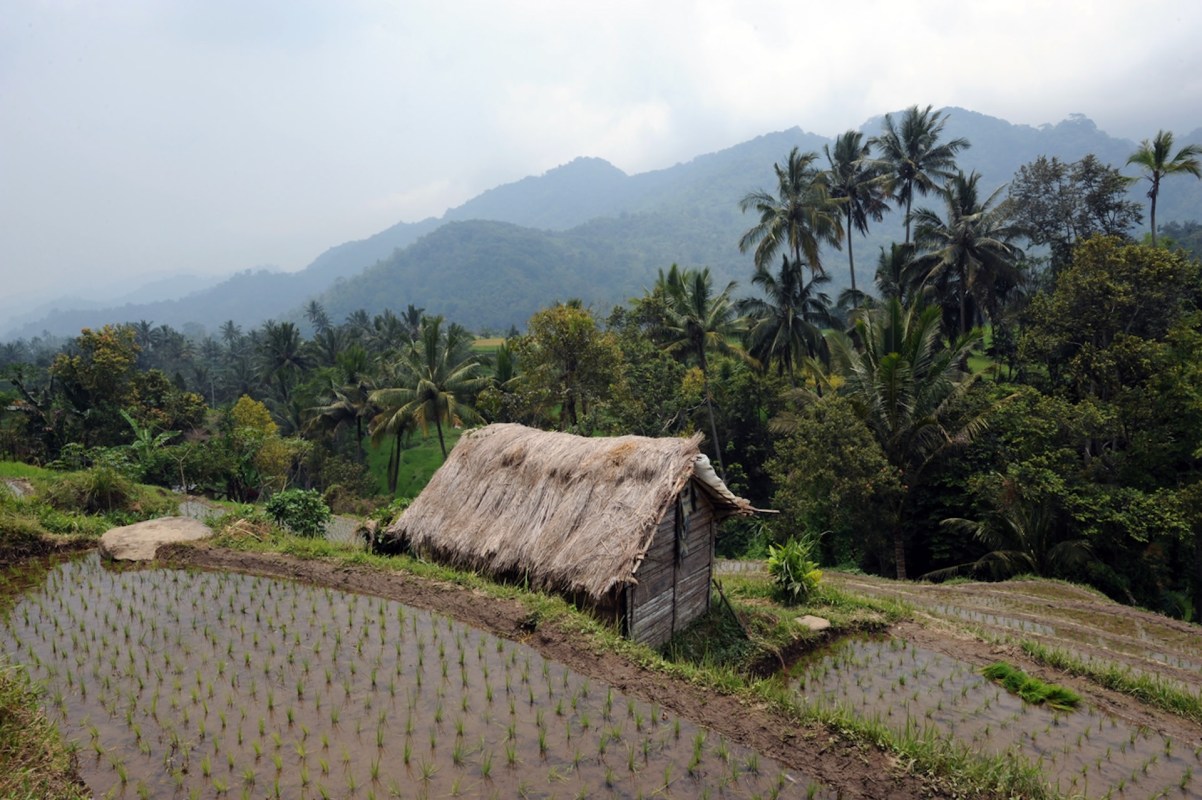Life used to come to a halt when the sun set on the villagers living in Laindeha on the island of Sumba, Indonesia, but that all changed with their introduction to electricity three years ago.
Before, darkness generally signaled the end of the day for residents who couldn't afford noisy, polluting generators that rely on dirty energy sources. A few would even try to power lightbulbs with car batteries or use oil lamps that were a fire hazard.
Community improvement projects have since provided individual off-grid solar panel systems to the residents of Laindeha and other remote villages throughout the country, helping in ways that people who have stable access to electricity take for granted. More light means more time to work, study, and socialize.
"It used to be dark at night, now it's bright until morning," Tamar Ana Jawa, a weaver and mother of two living in Laindeha, told the Associated Press. "So tonight, I work ... to pay for the children."
"I couldn't really study at night before. But now I can," said Antonius Pekambani, a 17-year-old student from the east Sumba village of Ndapaymi.
Jawa and Pekambani personify the electrification of Indonesia over the last three decades, as data from The World Bank shows that coverage in the southeastern Asian nation of nearly 280 million people jumped from 48.9% in 1991 to 99.2% in 2021.
While solar power is uncommon in Indonesia because the government doesn't let people mitigate the cost by selling surplus energy back to the grid, Sumba Sustainable Solutions has helped solve this issue.
It uses the donations it receives to subsidize home solar systems to allow customers to pay the equivalent of $3.50 once a month for three years. The company has also distributed solar-powered wireless lamps and mills to thousands of homes on the island, providing the villagers with a level of convenience and efficiency they had never experienced before.
There have been a few snags that have prevented the transition from being seamless. The off-grid systems can only power smaller devices like phones and lightbulbs and can be challenging to repair, with some parts hard to attain. Additionally, Sumba Sustainable Solutions has waitlisted villagers as it waits for donations, and some residents have struggled to make payments.
Nonetheless, there is no doubt how profound the effect of electricity has been for those lucky enough to have access to it.
Projections from the International Energy Agency estimated that 760 million people globally lived without electricity by the end of 2023, a large proportion of whom resided in Sub-Saharan Africa and South Asia.
That makes companies like Sumba Sustainable Solutions in Indonesia and Global OTEC — which is bringing renewable energy to the African country of São Tomé and Príncipe — all the more important.
"I'm grateful for this lamp," Jawa said. "It will be bright all night."
Join our free newsletter for weekly updates on the coolest innovations improving our lives and saving our planet.









